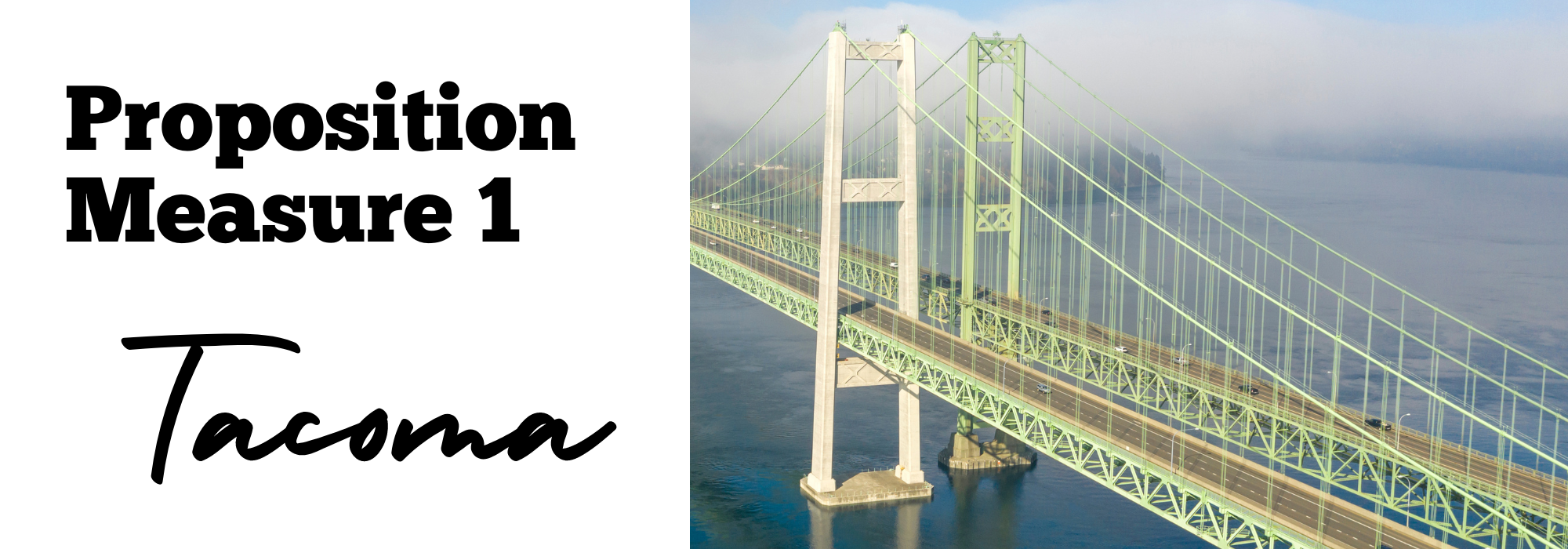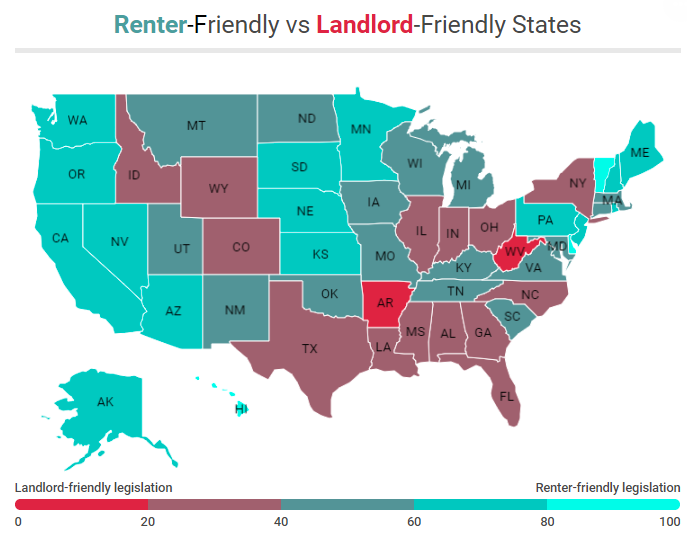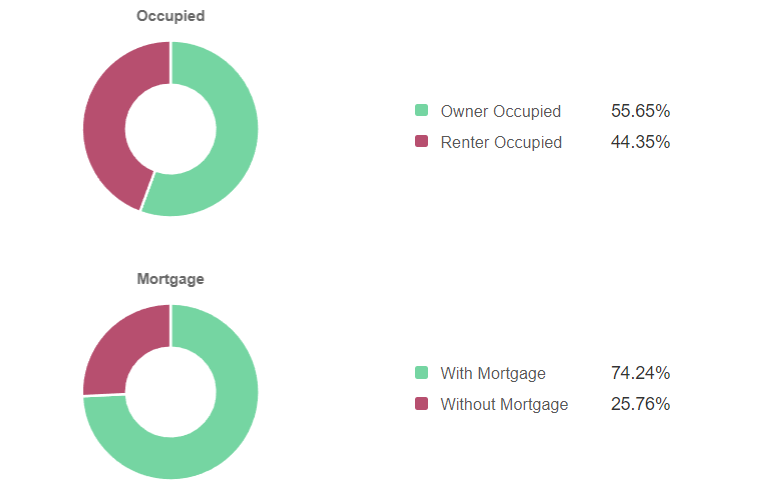Landlord Fairness Code Initiative

Proposition Measure 1 Passed November 2023 and is enforceable as of December 8th 2023
Measure 1 is one of the strictest anti-landlord laws in the nation and the second major code in a single year thanks to Tacoma For All, a coalition that includes the Tacoma Democratic Socialists of America
As a landlord, I know how much this will affect me and my clients. We are staying on top of it. Connect with me so we can address your questions and help guide you with resources and options.

Opinion:
Its hard to believe this controversial law could pass with 55.65% owner occupied and 74.24% with a mortgage would vote for this detrimental law. (Point2home.com)

Additionally a poll conducted by apartment list in 2022 said that only 50.2% of renters turn out to vote. So not only would we need 100% of all renters to vote in favor but we would also need over 50% of home owners to vote in favor of it as well.
The story is even more odd that you would expect this bail not to pass given the numbers and the extreme nature of it, but majority of ballot count was against at the final count it was in favor by only 400 votes! HMMM
Regardless, here are the new laws of Tacoma landlords – No known new laws for renters or Squatters:
Squatters have legal rights. The Washington law allows squatters to live in another person’s property if the actual property owner doesn’t take legal actions to force an eviction process. Additionally, squatters can claim full legal ownership of the real estate property through Adverse Possession. Wrents.com
Tacoma Measure 1
- Requiring landlords to be in compliance with health and safety laws prior to evicting a tenant or increasing rent;
- Prohibiting unfair or excessive fees (as defined);
- Requiring landlords to provide two notices before increasing rent (first between 210 and 180 days prior and second between 120 and 90 days prior);
- Requiring landlords to pay relocation assistance if the rent increase is above 5% equal to two months of rent (or higher if the increase is above 7.5%);
- Prohibiting evictions between November 1 and April 1; and
- Prohibiting the eviction of members of the military, first responders, seniors, family members, health care providers, or educators.
Amended Substitute Ordinance 28894 July 2023
Effective July 24, 2023, the Rental Housing Code includes:
- 120-day written notice needed before increasing rent
- New standards that apply to shared housing arrangements
- Standardization of tenant screening criteria
- Limitations on imposing late fees and withholding pet damage deposits
- Stronger business license, health, and safety requirements
- New rental agreement regulations
- Requirement to advise tenants of option to pay move-in fees in installments

New Protections for tenants:
- Double the amount of notice for rent increases, from 60 to 120 days
- Greater protections for subleasing tenants in shared housing arrangements
- Established maximum income-to-rent ratios
- Elimination of blanket bans on felony or drug convictions and arrest records
- Landlords prohibited from using Social Security Numbers as the sole tenant screening method
- No late fees exceeding 1.5% of monthly rent with a maximum limit of $75 per month
- More time to pay move-in fees
- Landlords prohibited from pursuing eviction or increasing rent without a current City rental business license or if the unit is dangerous or unsafe
- New limitations on pet restriction
Notices to Increase Rent:
- A 120-day written notice to the tenant will now be required. Subsidized housing and deed-restricted affordable housing are exempt from this requirement.
Standardized Tenant Screening Criteria:
Landlords cannot:
- Exceed maximum income-to-rent ratios [Note: The City establishes its limits on income-to-rent ratio based on Fair Market Rent (FMR) – or what someone would typically pay for a moderately priced unit in a given area.]
- Place blanket bans on prospective tenants with felony or drug convictions, and arrest records
- Require a Social Security Number as the only way to conduct screening [Note: Alternative proof to establish eligibility must be accepted.
On rental agreements, landlords are:
- Required to state the legal number of occupants and habitable spaces in the unit.
- Required to provide a name and physical address, in addition to any rental portals or online tools to pay rent, request repairs, and file complaints. [Note: If a landlord does not reside in the state of Washington, there must also be an authorized agent who resides within Pierce County, as outlined in RCW 59.18.060(15).]
- Prohibited from assessing penalties or forfeiture of deposit if a tenant terminates the tenancy before expiration of a minimum term month-to-month rental agreement.
- Prohibited from regulating or restricting dogs based on breeds, unless they have an insurance company-required breed restrictions, provided that any breed of service animal shall be allowed.
Standards for Fees and Deposits:
Late fees cannot exceed 1.5 percent of monthly rent, with a maximum limit of $75 per month, and landlords must actively take steps to recover late fees during tenancy by serving quarterly notices or invoices and tenants will have more time to pay move-in fees, depending on length and type of rental agreement.
Landlords will be prohibited from:
- Withholding late fees from deposits, or reporting information regarding late fees to prospective landlords at the end of tenancy, if late fees were not addressed during tenancy
- Assessing late fees on charges that are not rent, such as installment payments, deposits, or amenities like parking
- Requiring a pet damage deposit exceeding 25 percent of one month’s rent
- Withholding full refund of a tenant’s pet damage deposit if unused
A tenant’s non-refundable fees, security deposit and last month’s rent are generally described as move-in fees. Breakdown of move-in fees:
Six Months or Longer
Tenants will be allowed six, instead of three, months to pay move-in fees and deposits in monthly installments
Three to Five Months Long
Tenants will be allowed to pay move-in fees and deposits in monthly installments over the course of three months
Month-to-Month Tenants will be allowed to pay move-in fees and deposits in monthly installments over the course of two months, and last month’s rent over the course of six months
For shared housing arrangements (where a tenant rents a private room or shared room, but shares common areas such as a kitchen, gathering spaces, and/or bathroom with other tenants), the following requirements will apply:
- The master lease holder must share contact information for any subleasing tenants with the landlord, and the landlord’s contact information with any subleasing tenants.
- When renting to four or more tenants, separate rental agreements for each habitable space (i.e. spaces used for living, sleeping, eating or cooking) are required
- The landlord is required to serve any notices that can lead to eviction to the master lease holder and provide the master lease holder with additional copies of notices to serve each subleasing tenant.
- If subleasing tenants are not provided a written notice of eviction, the landlord must allow the subleasing tenants an additional 30 days to vacate after the eviction order is issued, or as ordered by the court.
Business License, Health, and Safety Requirements:
A landlord will not be able to pursue eviction or increase rent without a current City of Tacoma business license or if a dwelling unit does not comply with RCW 59.18.060, and presents conditions that endanger or impair tenant health and safety.

Now the good News:
The way it was written prohibits the city from enforcing the new rules administratively, and the initiative cannot be amended for two years without a public vote. Tenants would have to take their landlords to court for any alleged violations.
This new law is in the beginning phases and updates are occurring. Please be sure to research and investigate more into this topic yourself for a more complete and full understanding of the laws. Below are a few resources.
- Original laws https://www.cityoftacoma.org/cms/one.aspx?pageId=163295
- Added laws Nov 2023 https://washingtonstatestandard.com/briefs/tacoma-tenants-rights-measure-ahead-by-fewer-than-400-votes/
- Squatters https://www.wrents.com/squatters-rights-wa
- You can read the full list of new laws Here
- Or the actual ordinance here






